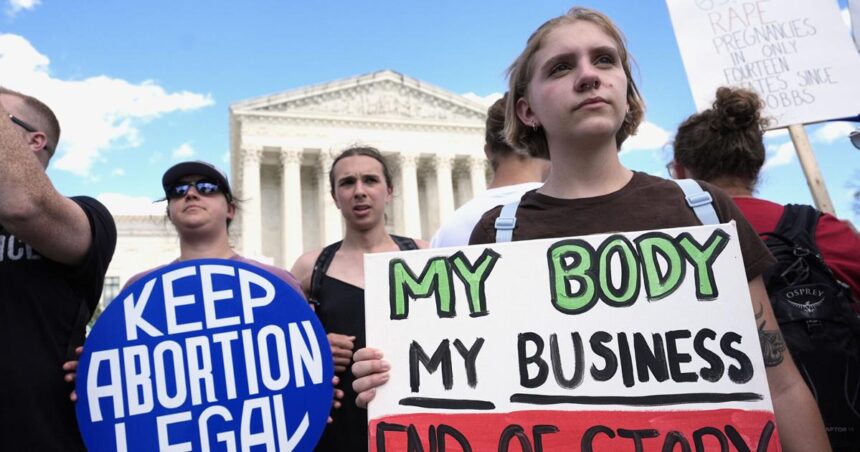Before the Supreme Court overturned Roe v. Wade, a group of conservative Christians strategically influenced the courts through political channels. According to a recent article by Elizabeth Dias and Lisa Lerer in The New York Times Magazine, this network used legal arguments, medical studies, and court rulings to shape the post-Roe legal landscape.
With Roe no longer in effect, conservative state legislatures have passed restrictive abortion laws. Since the 2022 Dobbs v. Jackson Women’s Health Organization decision, at least 14 states have banned abortion with minimal exceptions and seven have limited the procedure before 18 weeks, notes the Guttmacher Institute.
After Dobbs, the legality of abortion remains unresolved, with 40 cases challenging abortion bans in 23 states, as reported by the Brennan Center for Justice.
The Marshall Project has been monitoring the impact of these laws, particularly in the South, where most prosecutions related to pregnancy occur. They interviewed organizations in Alabama, Mississippi, North Carolina, and South Carolina to understand their responses.
Organizations reported a climate of fear and confusion following the end of Roe. New laws and tactics have raised concerns about free speech, travel, and telemedicine. Legal experts are working to stay ahead of the evolving landscape.
Here are key points to consider:
Abortion laws and free speech
In Alabama, groups like Yellowhammer Fund faced threats of prosecution by the State Attorney General for assisting residents seeking out-of-state abortions. The organizations argue that such threats suppress free speech.
A federal judge recently ruled that the lawsuit challenging the state ban can proceed, despite attempts to dismiss it.
Reproductive rights groups across the South are cautious about sharing legal advice due to the uncertain landscape.
Many laws lack legal precedent
Recent state laws target those assisting with abortions or seeking out-of-state care. Laws in Tennessee and Idaho penalize adults helping minors access abortion services.
Laws like these are being challenged in court, with emphasis on fundamental rights such as freedom of speech and due process.
Legal challenges in reproductive care deserts
Rural areas face limited access to reproductive healthcare, exacerbated by restrictions on abortion. The closure of labor and delivery wards has led to maternity care deserts where obtaining an abortion is difficult.
Laws restricting telehealth services in Ohio have raised legal concerns for healthcare professionals and impacted low-income women in rural areas.
Addressing confusion with new legal tactics
Legal organizations have formed coalitions to provide guidance on the rapidly changing legal landscape. The Abortion Defense Network, launched by multiple organizations, offers support to those involved in providing abortion care.
This story was produced by The Marshall Project, a nonpartisan, nonprofit news organization that seeks to create and sustain a sense of national urgency about the U.S. criminal justice system, and reviewed and distributed by Stacker Media.





